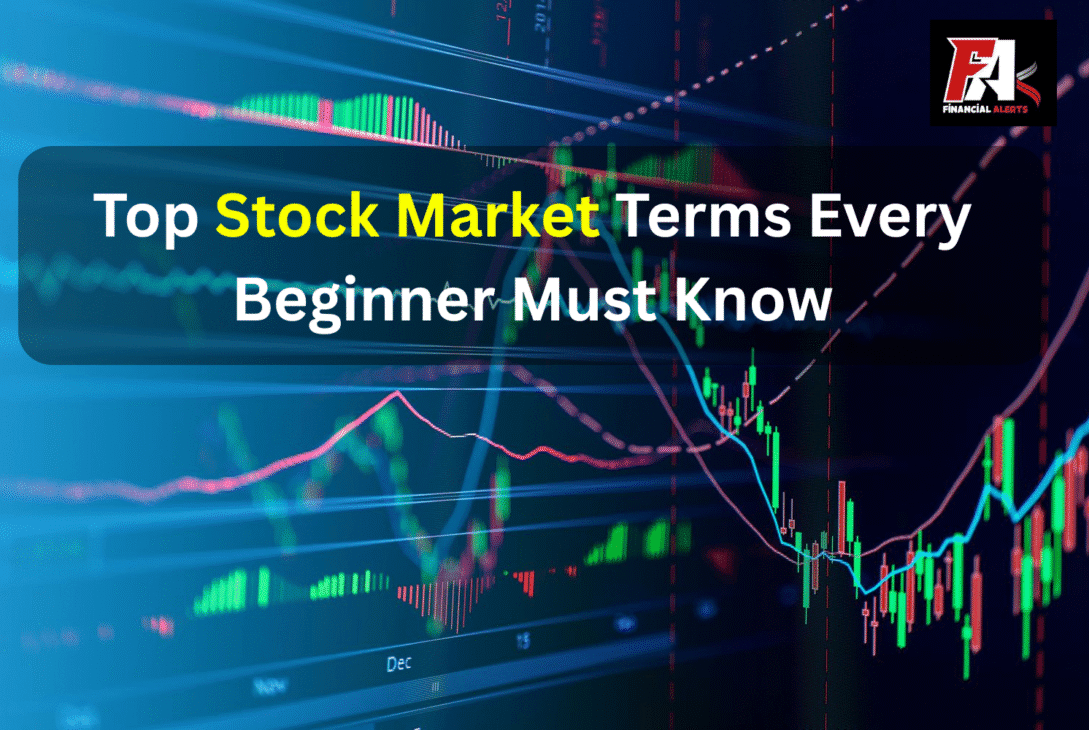The stock market can seem overwhelming at first. Understanding key terms helps simplify your investing journey. This blog will break down essential stock market jargon with high-search-volume keywords for better clarity.
What is the Stock Market?
The stock market is a marketplace where investors buy and sell shares of public companies. It’s a platform for building wealth through long-term investments or short-term trades. Major stock exchanges include the NSE (National Stock Exchange) and BSE (Bombay Stock Exchange).
Stock
A stock represents ownership in a company. When you buy a stock, you own a small part of the business. Stocks are also known as equities or shares. Their prices fluctuate based on market demand, company performance, and economic trends.
Bull Market vs Bear Market
A bull market means rising stock prices over time. Investors feel confident and expect continued growth. On the other hand, a bear market refers to declining stock prices and widespread pessimism.
Market Capitalization (Market Cap)
Market capitalization is the total value of a company’s shares in the stock market. It is calculated as:
Market Cap = Share Price × Total Outstanding Shares
- Large Cap – Stable and established companies
- Mid Cap – Growth potential with moderate risk
- Small Cap – High risk, high return possibilities
IPO (Initial Public Offering)
An IPO is when a company sells its shares to the public for the first time. It allows the company to raise capital. Investors often watch IPOs for early entry into potentially successful businesses.
Dividend
A dividend is a portion of a company’s earnings paid to shareholders. Not all stocks offer dividends. Dividend-paying stocks attract long-term investors looking for regular income.
Stock Broker
A stock broker is a registered entity that buys and sells stocks on behalf of investors. Some popular stock brokers in India include Zerodha, Upstox, and Groww.
Demat Account
To buy or sell shares, you need a Demat account. It holds your shares electronically. A Demat account is linked with your trading account and bank account.
Trading Account
A trading account is used to place orders in the stock market. It enables buying and selling of stocks. Most trading platforms offer app-based interfaces for easy access.
Sensex and Nifty
- Sensex is the stock market index of BSE.
- Nifty 50 is the index of NSE.
Both indices track the performance of top 30 and 50 companies, respectively, in India.
Blue Chip Stocks
Blue chip stocks are shares of large, established companies with a history of stable performance. These are considered safe investments during volatile markets.
Intraday Trading
Intraday trading means buying and selling stocks within the same trading day. It’s ideal for experienced traders looking for quick profits. High volatility stocks are often preferred for intraday.
Long-Term Investing
Long-term investing involves holding stocks for several years. Investors follow this strategy to benefit from compound returns, dividends, and stock splits over time.
Stock Portfolio
A stock portfolio is a collection of multiple stocks owned by an investor. A diversified portfolio reduces risk and improves returns.
Stop Loss and Target Price
- Stop Loss – An automatic sell order placed to minimize losses.
- Target Price – A set price where an investor plans to book profit.
These tools help manage risk in volatile markets.
Fundamental Analysis
Fundamental analysis evaluates a company’s financial health, earnings, growth potential, and market position before investing. It’s suitable for long-term investors.
Technical Analysis
Technical analysis focuses on charts, price patterns, and market trends. It helps traders make short-term decisions using indicators like Moving Averages, RSI, and MACD.
High-Volume Stocks
High-volume stocks are those with heavy trading activity. These stocks are preferred by traders for better liquidity and price movements.
SEBI (Securities and Exchange Board of India)
SEBI is India’s stock market regulator. It ensures transparency, protects investors, and monitors fraud.
F&O (Futures and Options)
Futures and Options are stock market derivatives used for hedging or speculation. They are complex instruments suitable for advanced traders.
Multibagger Stocks
Multibagger stocks offer returns multiple times higher than the original investment. These are rare but highly rewarding in the long run.
Penny Stocks
Penny stocks trade at low prices and have small market capitalization. They carry high risk but can give explosive returns.
Conclusion
Mastering stock market terms gives you an edge as an investor. Use this guide to improve your knowledge and start making informed investment decisions. Keep learning and stay updated with the latest stock market trends.
Keywords used: stock market, stock broker, Demat account, intraday trading, long-term investing, IPO, blue chip stocks, market capitalization, Sensex, Nifty, dividend, technical analysis, fundamental analysis, multibagger stocks, penny stocks, SEBI.

I am a digital marketing executive as well as content writer in the stock market and crypto related blogs. My goal is to provide simple, interesting and reliable information to readers through my articles so that they always stay updated with the world of stock market and crypto.




h1sbaf